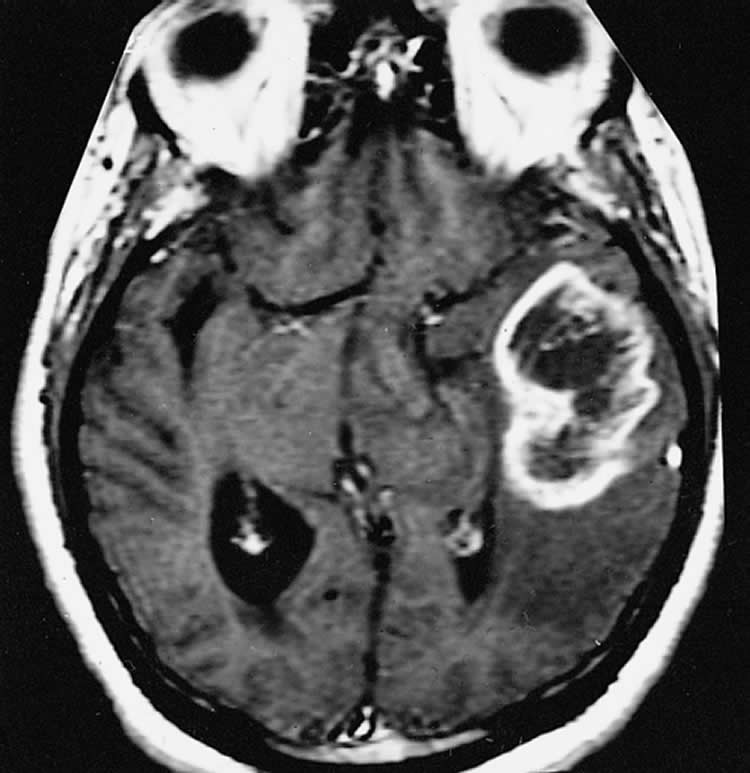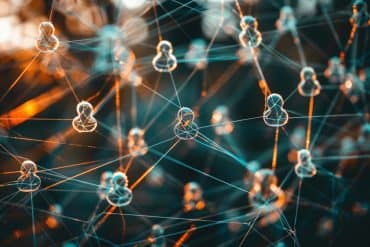Researchers at the University of California, San Diego School of Medicine have found one of the keys to why certain glioblastomas – the primary form of a deadly brain cancer – are resistant to drug therapy. The answer lies not in the DNA sequence of the tumor, but in its epigenetic signature. These findings have been published online as a priority report in the journal Oncotarget.
“There is a growing interest to guide cancer therapy by sequencing the DNA of the cancer cell,” said Clark Chen, MD, PhD, vice-chairman of Research and Academic Development, UC San Diego Division of Neurosurgery and the principal investigator of the study. “Our study demonstrates that the sensitivity of glioblastoma to a drug is influenced not only by the content of its DNA sequences, but also by how the DNA sequences are organized and interpreted by the cell.”
The team of scientists, led by Chen, used a method called comparative gene signature analysis to study the genetic profiles of tumor specimens collected from approximately 900 glioblastoma patients. The method allows investigators to discriminate whether specific cellular processes are “turned on” or “turned off” in glioblastomas. “Our study showed that not all glioblastomas are the same. We were able to classify glioblastomas based on the type of cellular processes that the cancer cells used to drive tumor growth,” said Jie Li, PhD, senior postdoctoral researcher in the Center for Theoretical and Applied Neuro-Oncology at UC San Diego and co-first author of the paper.

One of these cellular processes involves Epidermal Growth Factor Receptor (EGFR). The study revealed that EGFR signaling is suppressed in a subset of glioblastomas. Importantly, this suppression is not the result of altered DNA sequences or mutations. Instead, EGFR is turned off as a result of how the DNA encoding the EGFR gene is organized in the cancer cell. This form of regulation is termed “epigenetic.” Because EGFR is turned off in these glioblastomas, they become insensitive to drugs designed to inhibit EGFR signaling.
“Our research suggests that the selection of appropriate therapies for our brain tumor patients will require a meaningful synthesis of genetic and epigenetic information derived from the cancer cell,” said co-first author Zachary J. Taich.
Notes about this brain cancer research
Co-authors include Amit Goyal, David Gonda, Johnny Akers, Bandita Adhikari, Kunal Patel and Bob S. Carter, Center for Theoretic and Applied Neuro-Oncology, UCSD; Scott Vandenberg, Department of Pathology, UCSD; Wei Yan, Zhaoshi Bao and Tao Jiang, Department of Neurosurgery, UCSD; Renzhi Wang, Peking Union Medical College Hospital, China; and Ying Mao, Huashan Hospital, Shanghai Medical College, Fudan University, China.
Funding for this research came, in part, from the Sontag Foundation, the Burroughs Wellcome Foundation, the Kimmel Foundation, the Doris Duke Foundation and the Forbeck Foundation.
Contact: Scott LaFee – UCSD
Source: UCSD press release
Image Source: The image is credited to The Armed Forces Institute of Pathology and is in the public domain
Original Research: Full open access research for “Epigenetic suppression of EGFR signaling in G-CIMP+ glioblastomas” by Jie Li, Zachary J. Taich, Amit Goyal, David Gonda, Johnny Akers, Bandita Adhikari, Kunal Patel, Scott Vandenberg, Wei Yan, Zhaoshi Bao, Bob S. Carter, Renzhi Wang, Ying Mao, Tao Jiang, and Clark C. Chen in Oncotarget. Published online August 16 2014 doi:not available
Epigenetic suppression of EGFR signaling in G-CIMP+ glioblastomas
The intrinsic signaling cascades and cell states associated with the CpG Island Methylator Phenotype (G-CIMP) remain poorly understood. Using published mRNA signatures associated with EGFR activation, we demonstrate that G-CIMP+ tumors harbor decreased EGFR signaling using three independent datasets, including the Chinese Glioma Genome Atlas(CGGA; n=155), the REMBRANDT dataset (n=288), and The Cancer Genome Atlas (TCGA; n=406). Additionally, an independent collection of 25 fresh-frozen glioblastomas confirmed lowered pERK levels in G-CIMP+ specimens (p<0.001), indicating suppressed EGFR signaling. Analysis of TCGA glioblastomas revealed that G-CIMP+ glioblastomas harbored lowered mRNA levels for EGFR and H-Ras. Induction of G-CIMP+ state by exogenous expression of a mutated isocitrate dehydrogenase 1, IDH1-R132H, suppressed EGFR and H-Ras protein expression as well as pERK accumulation in independent glioblastoma models. These suppressions were associated with increased deposition of the repressive histone markers, H3K9me3 and H3K27me3, in the EGFR and H-Ras promoter regions. The IDH1-R132H expression-induced pERK suppression can be reversed by exogenous expression of H-RasG12V. Finally, the G-CIMP+ Ink4a-Arf-/- EGFRvIII glioblastoma line was more resistant to the EGFR inhibitor, Gefitinib, relative to its isogenic G-CIMP- counterpart. These results suggest that G-CIMP epigenetically regulates EGFR signaling and serves as a predictive biomarker for EGFR inhibitors in glioblastoma patients.
“Epigenetic suppression of EGFR signaling in G-CIMP+ glioblastomas” by Jie Li, Zachary J. Taich, Amit Goyal, David Gonda, Johnny Akers, Bandita Adhikari, Kunal Patel, Scott Vandenberg, Wei Yan, Zhaoshi Bao, Bob S. Carter, Renzhi Wang, Ying Mao, Tao Jiang, and Clark C. Chen in Oncotarget, August 16 2014 doi:not available






